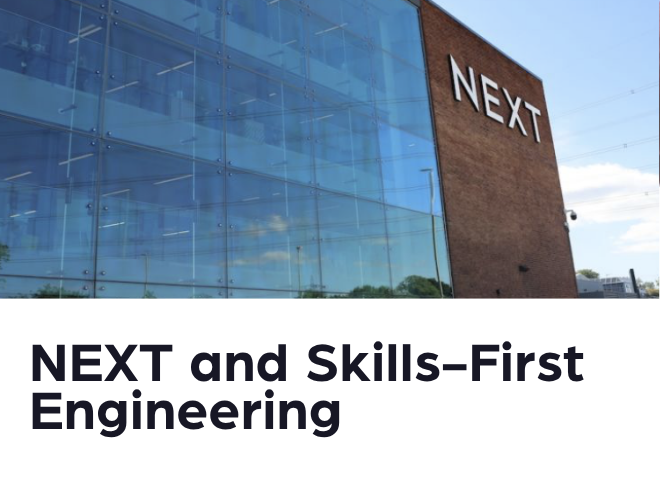Underemployment is still hitting the military community hard. At Redeployable, we’re not here to sugar-coat it or toss around corporate clichés, we’re here to end it. But we’re not there yet.
To get a clearer view of what’s really going on, Ben Read, veteran and founder of Redeployable, asked over 100 ex-forces professionals in our network a simple question: Do you feel underemployed in your civilian job? The answer? A resounding “yes” from more than a third.
Let’s break it down.
What actually is underemployment?
Underemployment is when your role doesn’t match your capability. You're not being stretched. You’ve got the skills, but you’re not using them. You’re overqualified and underchallenged; great for the company’s bottom line, terrible for your motivation.
Veterans are walking case studies in adaptability, leadership, and resilience, but the civilian job market still hasn’t fully clocked that. Deloitte’s Veterans Work research says only 66% of medium and large organisations recognise veterans for their communication skills. That’s one of the key strengths armed forces soldiers consistently bring to the table.
The problem isn’t that veterans lack ability, it’s that employers often can’t read the manual. And that’s where we come in, translating military occupational skills into civilian-friendly language and giving employers the education they clearly still need.
What did our network have to say?
38% of veterans told us they feel underemployed. Frankly, that tracks.
Let’s be honest: you didn’t spend years mastering leadership, logistics, or crisis management to end up doing box-ticking admin. Deloitte also found that over half of employers say veterans progress faster than their civilian peers once they’re in. So, why aren’t more veterans starting higher up the ladder?
Why don’t more veterans land leadership roles after leaving service? (read this article on leadership)
Why Do Veterans Feel Underemployed?
We spoke to some veterans who responded to our survey to get their thoughts. Here’s a few reasons why they feel underemployed:
“My skill set was not properly utilised. I believe this is down to a lack of understanding from employers about the autonomous nature of ranks. There's a belief that we just do what we’re told, when in reality, we’re problem-solvers who get the job done by whatever means necessary.”
Military personnel are autonomous decision-makers. They thrive under pressure, make informed decisions quickly, and think on their feet. So if you’re an employer who thinks a veteran is just ‘following orders’ - think again.
“There needs to be a greater understanding of the free-thinking, problem-solving ability that veterans bring to the table.”
Our advice? Shout about it. Don’t just say you’re a decision-maker, show examples on your CV of when you’ve had to make big calls. Show how your military experience is a key part of who you are in the civilian workforce.
“I’ve recently gone back to higher education to gain qualifications that civilian employers understand.”
Sometimes, underemployment is a strategic choice. Many veterans opt for entry-level roles to gain civilian qualifications or build skills in a new sector. Don’t feel like you’re failing if you’re using this time to develop further.
[RESOURCE]
How to Avoid Underemployment: Practical Tips
Right now, some sectors are facing major skills shortages, particularly in technology and management. Guess what? Those skills are all standard with a military background. Whether it’s leadership, strategy, or problem-solving, you’ve got them covered. Plus, if you’ve got hard skills like programming, engineering, or development, you're in demand.
Here’s how to make sure you’re not leaving those skills on the shelf:
1. Own Your Skills: You’ve gone through rigorous training and earned trade-specific qualifications. Make sure you show these off. Talk about them in interviews. Put them front and centre on your CV. Military experience often means working internationally with allies. That adaptability and collaborative teamwork? It’s worth its weight in gold. Put real-world examples front and centre when you talk about your skills.
2. Show You’re Always Growing: Many veterans continue to develop after they leave service, whether it’s through management courses, technical qualifications, or higher education. If you’re keeping up with professional training, shout about it. It shows you’ve got ambition. If you didn’t continue your training right away? No problem. From our own experiences and from working with veterans, we know that a continual cycle of learning and upskilling is vital. It’s a mindset the military instils in you. So, if you’ve been taking steps to improve, talk about it.
3. Prove You Can Handle the Heat: Remember those performance evaluations you had to deal with in the forces? They weren’t easy. But they proved you can perform under pressure, under scrutiny, and when the stakes are high. Employers love this. It shows your competence and professionalism, and it’s a trait that civilian employers struggle to find.
Finding the right role for you
Big-name companies aren’t always the dream. Sometimes they’re just big. If you want your skills to be recognised (and your career to progress), smaller firms or start-ups might actually move faster and give you more ownership.
Many of them are actively looking for veteran talent, they just don’t know where to find you. That’s why we exist.
Tom’s Tips for the 12 Months Post-Service
Tom joined Redeployable after leaving the Army. Here’s how he mapped his own career transition:
Month 1-3: Get Your Bearings
Start with a self-assessment. Think about what you don’t want as much as what you do want. Here are some things to consider:
- Minimum salary: What do you need to live comfortably?
- Location and travel: Do you need to commute, or are remote roles your thing?
- Working pattern: Are you okay with a rigid 9-to-5, or are you after more flexibility?
- Type of work: Do you prefer a big team or a smaller, more agile company?
Month 4-6: Get Out There
Attend transition events and network like mad. LinkedIn is your best friend, and don’t forget to use it. Enrol in any courses or certifications that’ll up your game. (And yes, sign up to Redeployable while you’re at it)
Month 7-9: Sharpen Your Profile
Refine your personal brand. Update your CV, make sure your LinkedIn profile is top-notch, and start engaging with industry content. This is also a good time to look for part-time work or internships. You never know where it could lead (just ask Tom).
If you want Tom's advice in more detail check out this article.
Month 10-12: It’s Go Time
Start applying for roles, practice your interview techniques, and lean on your growing network for job referrals and tips. Remember, if you land in a role that’s not quite the one for you, it’s not the end of the world.
Many people take time to find the right fit. Stay focused and keep moving forward.
[CALLOUT]





.png)
.avif)


